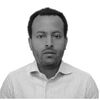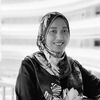ESWI Summit 2024: Early Career Scientists
Johan van der Plas, Fiseha Wadilo Wada, Lucy Mosscrop, Wan Nabilatul Huda binti Wan Ghazali, Marianna Ilarj Burgio
Thanks to the Early Career Scientists Fund, five early career scientists in the field of RSV took part in the ESWI Respiratory Virus Summit. They each delivered a presentation introducing themselves and their ongoing work on RSV, bringing innovative ideas and making clear calls for action.
As part of their participation at the ESWI Summit, they engaged in a specialised workshop on science-policy interface and effective communication strategies. This workshop was designed to offer a unique opportunity to refine communication skills by exploring various ways of effectively communicating with scientists, the public, and policy makers.
The key message from the workshop highlighted the often-overlooked communication gap between policymakers and scientists, early in a scientist's career. It emphasised the importance of actively considering the audience and tailoring the message scientists convey. By doing so, speakers can achieve a beneficial outcome for both themselves and their audience, particularly when presenting scientific data to policymakers.
The participation of the five early career scientists was made possible through the support of Sanofi and CLS Sequiris.

Johan L. van der Plas is a physician and clinical pharmacologist at the Leiden University Medical Center, the Netherlands. He is currently attending his specialist training to become a certified Clinical Microbiologist. He defended his PhD titled ‘Advances in Clinical Development for Vaccines and Therapeutics against Respiratory Virus Infections’ in 2023. His PhD was conducted at the Centre of Human Drug Research (Leiden) and consisted of early phase clinical trials for vaccines against RSV and influenza, antivirals against SARS-CoV-2 and explored innovative clinical trial and regulatory infrastructures to expedite clinical development of anti-infectives during pandemics. He is an experienced clinical trial manager and functioned as a project leader on more than 15 trials (including compounds directed against RSV, influenza, SARS-CoV-2, malaria and immunotherapy). He is experienced in intranasal administration, (non-)invasive mucosal sampling, handling of GMO-vaccines and the validation and application of controlled human infections models in early phase clinical trials. Next to his clinical work at the university hospital, he is a guest researcher at the Centre of Human Drug Research and sits on a strategic advisory committee for the development of a novel glycopeptide antibiotic developed by the Leiden University.

Nationality: Ethiopian
Position: PhD Student, Addis Ababa University and Armauer Hansen Research Institute, Addis Ababa, Ethiopia
Research Fields: Viral Etiologies and diagnostic biomarkers of acute lower respiratory infections, the burden and prevention strategies options of RSV in Africa
Short description: Fiseha Wadilo Wada has successfully completed his Bachelor's Degree (BSc) in Medical Laboratory Technology, followed by earning his Master's Degree (MSc) in Medical Microbiology. He has been serving as a university lecturer at Wolaita Sodo University for over four years, where he teaches courses such as medical microbiology, immunology, virology, parasitology, and clinical laboratory methods. Furthermore, he has published 19 research papers in reputable international journals. Currently, his research focuses on investigating the viral etiologies and diagnostic biomarkers of acute lower respiratory infections in children under the age of five in Addis Ababa, Ethiopia. He is also actively involved in researching various prevention strategies for RSV.

Lucy Mosscrop is a final year PhD student in the group of Professor John Tregoning at Imperial College London, co-supervised by Professor Maria Zambon (UK Health Security Agency/UKHSA) and Professor Peter Openshaw (NHLI, Imperial College London). Her work is supported by the Health Protection Research Unit in Respiratory Infections in collaboration with UKHSA.
Lucy’s research focus is on respiratory syncytial virus (RSV) specifically the fusion or F protein and how it has evolved and may continue to evolve as new interventions are implemented. As part of this work, she has collaborated extensively with UKHSA to help set up an improved RSV whole-genome sequencing assay (WGS) which has since been used to sequence over 1000 RSV-positive clinical samples from the UK (data available on GISAID). She is using this surveillance data to screen for potential RSV monoclonal antibody resistance mutations and test the biological consequences of these changes via reverse genetics systems. Ultimately hoping to establish a pipeline of surveillance, phenotyping and continuous monitoring.

Nabila initiated her career as a medical officer, earning a Bachelor of Medicine and Surgery (MBBS) in 2013. Expanding her expertise, she specialized in microbiology, achieving a Doctor of Pathology (Medical Microbiology) from the National University of Malaysia (UKM) in 2022. Nabila underwent practical and bioinformatics training for Influenza and RSV Viral genomic sequencing by WHO, Melbourne. Currently, she serves as a clinical microbiologist in the Virology Unit at the Infectious Diseases Research Centre (IDRC), Institute for Medical Research (IMR), National Institute of Health (NIH), Malaysia.
Her role includes acting as the laboratory supervisor for the Molecular Virology Laboratory in the Virology Unit, IMR, NIH, overseeing diagnostic, surveillance, and research activities. The laboratory serves as the National Influenza Centre (NIC) and actively participates in WHO's Global Influenza and SARS-CoV-2 Surveillance. Preparing for expansion, the laboratory aims to incorporate RSV into the surveillance program. Nabila's interests extend to research and development, focusing on in-house RSV diagnostic tests (e.g., multiplex PCR and antigen lateral flow assay), whole-genome sequencing, and vaccine studies. Additionally, she plays a vital role as a member of the IMR's ISO 15189 implementation committee and actively engages in audit activities as a molecular diagnostic laboratories' auditor.
Beyond her laboratory responsibilities, Nabila is a student supervisor and lecturer for the Post-graduate Diploma of Medical Microbiology (DMM), Virology module, conducted by SEAMEO-TROPMED's Regional Centre for Microbiology, Parasitology, and Entomology.

I received my degree in Medicine and Surgery from the University of Palermo, Italy in 2020. Since 2021, I’ve been attending the Graduate School of Geriatrics and Gerontology from the same University. Before starting the Graduate School, I worked on the COVID-19 vaccination campaign as a vaccination doctor. My research is mainly focused on the most common diseases affecting older people, such as neurocognitive disorders. I’m the author of two articles published in international scientific journals.
Share
Topics
Mediums
NCD / Risk Groups
Networks




